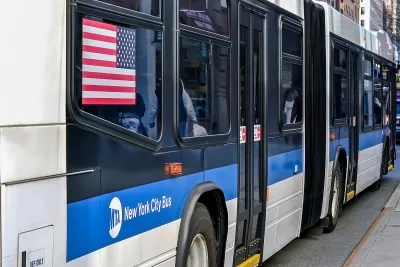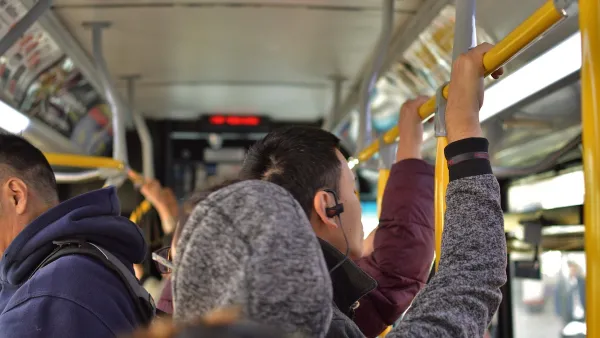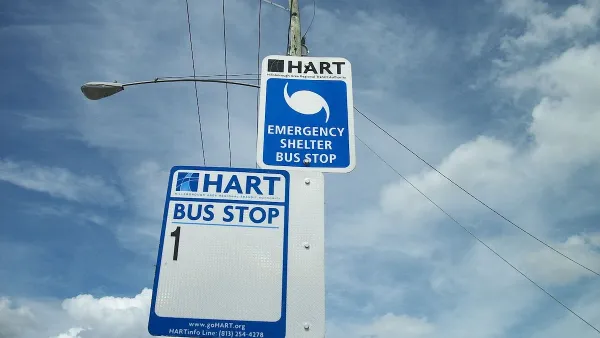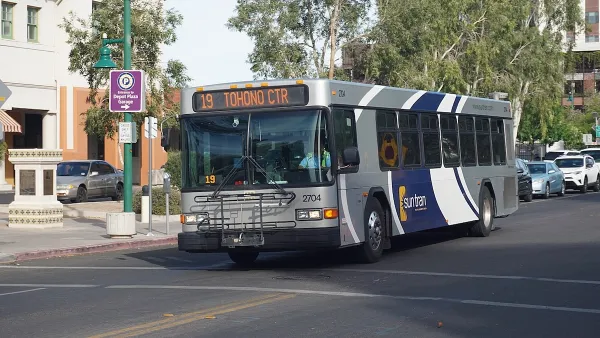The lines were chosen based on the income levels, ridership, and lack of subway access in surrounding neighborhoods.

Writing in El País, María Antonia Sánchez-Vallejo outlines New York City’s free transit pilot program, being launched on five bus lines that serve some of the city’s lowest-income neighborhoods.
The lines are spread out across each of the city’s five boroughs and will offer free rides for at least six months, with the possibility of extending the program to one year. “The authorities have explained that the routes were chosen based on ridership, fare non-payment rates and poverty in adjacent communities, as well as the routes’ access to commercial corridors.”
“As in Boston, where more than half of the users of the free lines live in low-income neighborhoods, the New York experiment seeks not only an environmental benefit, but above all to alleviate the unequal mobility of its residents in pursuit of greater spatial equity, which those who advocate alternative transportation models consider an essential step towards environmental sustainability.”
The program is expected to benefit up to 44,000 of the system’s 1.4 million weekly users each day. The article notes that “New York’s buses are the slowest in the country, with an average speed of 13 kilometers per hour (8mph). They are often excruciatingly slow, with runs that can exceed an hour in length.”
FULL STORY: New York rolls out free public transportation pilot project on five city bus lines

Analysis: Cybertruck Fatality Rate Far Exceeds That of Ford Pinto
The Tesla Cybertruck was recalled seven times last year.

National Parks Layoffs Will Cause Communities to Lose Billions
Thousands of essential park workers were laid off this week, just before the busy spring break season.

Retro-silient?: America’s First “Eco-burb,” The Woodlands Turns 50
A master-planned community north of Houston offers lessons on green infrastructure and resilient design, but falls short of its founder’s lofty affordability and walkability goals.

Test News Post 1
This is a summary

Analysis: Cybertruck Fatality Rate Far Exceeds That of Ford Pinto
The Tesla Cybertruck was recalled seven times last year.

Test News Headline 46
Test for the image on the front page.
Urban Design for Planners 1: Software Tools
This six-course series explores essential urban design concepts using open source software and equips planners with the tools they need to participate fully in the urban design process.
Planning for Universal Design
Learn the tools for implementing Universal Design in planning regulations.
EMC Planning Group, Inc.
Planetizen
Planetizen
Mpact (formerly Rail~Volution)
Great Falls Development Authority, Inc.
HUDs Office of Policy Development and Research
NYU Wagner Graduate School of Public Service




























